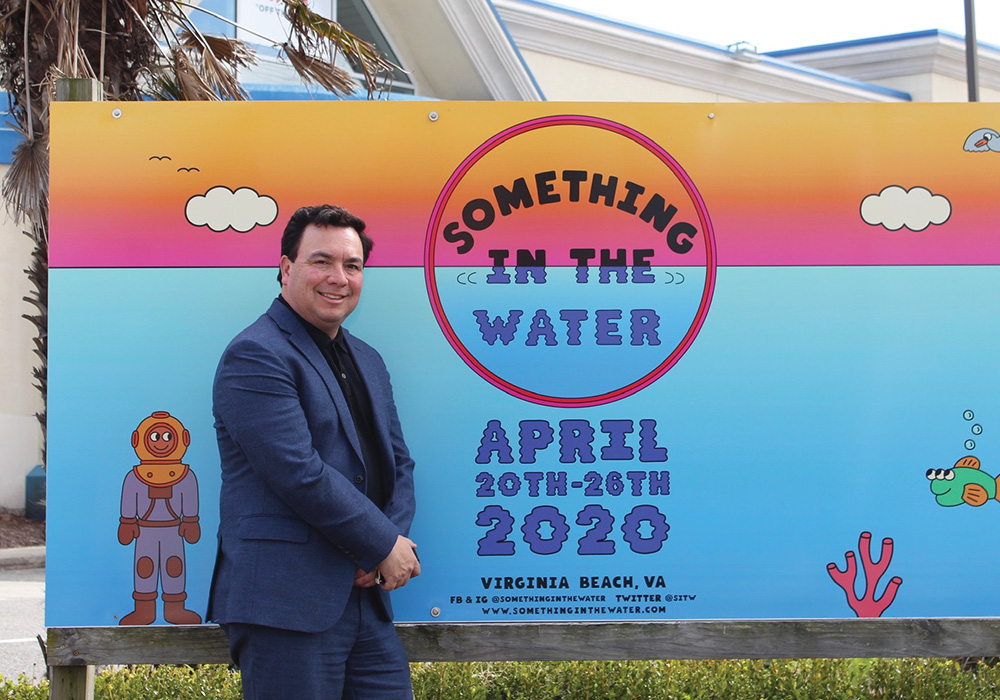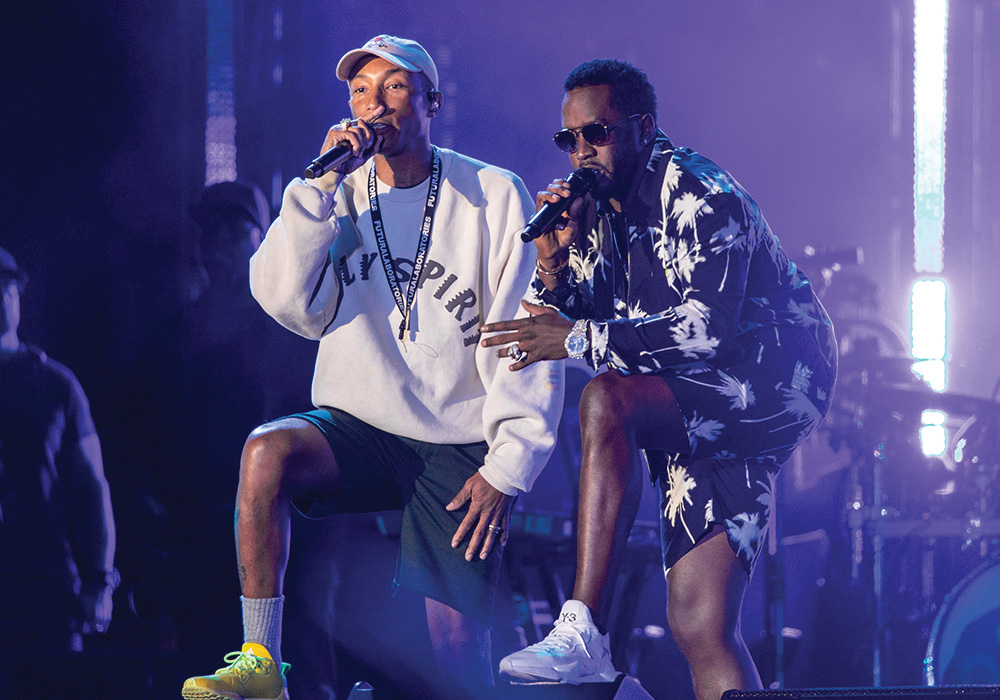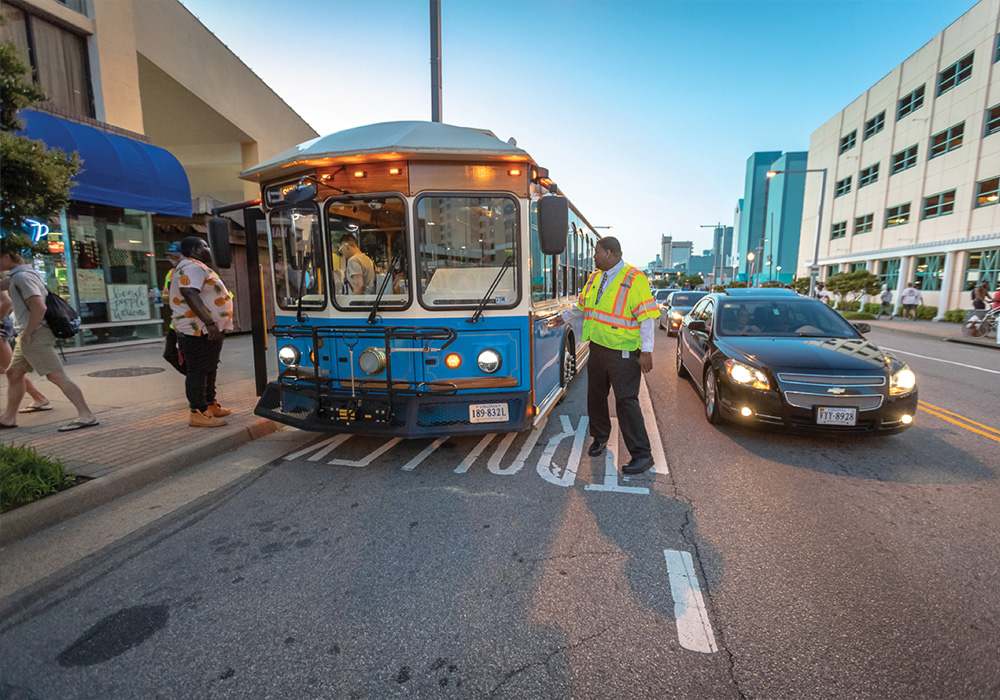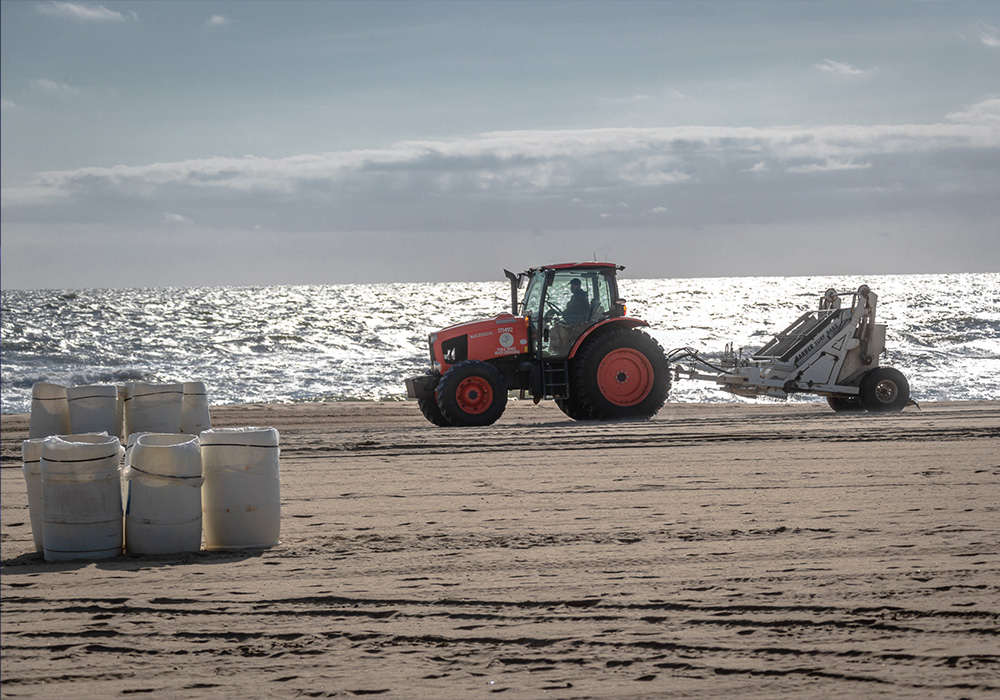Planning April 2020
When the Show Can’t Go On
A backstage pass to the past, present, and future of Virginia Beach’s biggest music festival.
By Lindsay Nieman
Around 60,000 people were expected in Virginia Beach this month for Something in the Water — nearly double the amount the festival pulled in last year during its inaugural event, which generated $21.8 million of economic activity. That’s according to Brian Solis, AICP, assistant to the city manager for special projects and the city’s staff lead for the festival.
Planning magazine caught up with Solis as preparations were gearing up for the sophomore effort, which was slated to include performances from the likes of Foo Fighters, Usher, and festival founder and Virginia Beach local Pharrell Williams. But it wasn’t just about the music — the week-long event included a full schedule of dynamic community programming, including a slew of opportunities for local talent and businesses. And then the COVID-19 pandemic hit.
Read on for an edited version of our conversation on what it takes to pull a massive festival together, how to decide when to call it off, and why community gatherings like Something in the Water will be even more important after the novel coronavirus.

Brian Solis, AICP. Photo courtesy Brian Solis.
What was the original inspiration behind the festival?
Brian Solis: For six or so years, there was a social media and crowd-sourced movement of college students converging on Virginia Beach to party before year-end exams. The weekend resulted in some violence each year. The overall consensus was that an organized event was needed to focus everyone's energy. In meeting with city leaders, Mr. Williams brilliantly conceptualized a community festival to welcome those students with our residents and provide an entertaining event for everyone to enjoy. He even offered to produce it in partnership with the countless artists, brands, and unique relationships he has developed over decades of excelling in multiple creative disciplines, making it the largest festival of its size in the region.
Aside from the performances, what else was on deck?
Solis: Something in the Water is not just a music festival, but a community festival. We had over four days of thematic programming relating to health and wellness, technology, women's issues, and food and wine scheduled. A career day, a pop-up church service, brand activations, and a community market were also planned.
That diversity of programming seems to be a big selling point. Why is it so important?
Solis: The underlying premise is to bring the best and the brightest of what Mr. Williams has experienced from around the world to collaborate with what Virginia Beach, the 757 [the community area code], and our commonwealth have to offer. We want to show the world what's in our water.

Virginia Beach local and Something in the Water founder Pharrell Williams performs with Diddy last April during the inaugural festival. Photo by Daniel Deslover/Zuma Wire.
How have those local offerings been highlighted?
Solis: Festival production offered some very thoughtful ways to make sure the community is involved. Local talent can upload their digital portfolios to the festival's portal, and the festival will give an opportunity to a select group of talented individuals to be involved in a yet-to-be-revealed way. For local businesses, the festival production team offers opportunities like the community market, special offers for attendees, and ways for local vendors to operate within the festival footprint.
Some communities think the issues that come along with these events — noise, traffic, damage to public spaces — overshadow the benefits. How was the city working to mitigate those impacts?
Solis: It's a whole lot of work, for sure. As a resort city that welcomes over 19 million visitors a year, we're adept at hosting both overnight and day visitors — but primarily during the warm season. The challenge was supporting an event of this large scale and duration during the shoulder season. Resort area businesses had to taper down their capital maintenance and renovations a month early to welcome a peak crowd. But we aspire to be even more of a year-round destination, and we want everyone to know we're open, so we welcomed the challenge.
We organized into four main planning groups: safety and security, transportation, facilities support, and communications. Each group had some corresponding deliverables: an event and emergency action plan; a traffic control plan; a city services request work plan; and apps and media promotions. Planning groups met routinely and made table-top decisions, advancing the permitting and logistics plans each time until we had the confidence to believe we could support the event and mitigate the potential negative impacts.
Festival production was at the table with the city and partner agencies throughout the process, and that partnership was the key to successful execution of the operational plan on all fronts.

The planning department is primarily responsible for supporting parking management, transit planning, and building permits. Photo courtesy City of Virginia Beach.
How has the planning department helped those efforts come together?
Solis: By the nature of the planning discipline, we map out incremental steps of success that start with an overall vision, overarching goals, and interwoven guiding principles. As a city, we listen to the festival's vision and goals and make sure our roles and responsibilities help support them while providing a platform for the creative folks. In the end, planning makes perfect.
What's your role in particular?
Solis: During the beginning stages of conceptualization, I was moved out of the planning department and into the city manager's office to manage several high profile innovative projects, including this festival.
As an urban planner, I approach it as both a small village city-management exercise and a design-build project. A small village has to account for all aspects of a planned civilization to support the festival footprint: water, sewage, recycling, solid waste, franchise utilities, public safety, transportation, and code compliance. It all comes together like a well-choreographed design-build project — it's just that the majority of it is loaded out afterward.
A little more than a month out from the festival, COVID-19 cases were on the rise in the U.S., but the impact hadn't quite hit most communities yet. What was the atmosphere like at that point, behind the scenes of one of the country's major music festivals?
Solis: Well, on the evening of March 5, festival staff and Virginia Beach officials had just hosted an informational community forum. With an in-person and online audience in the hundreds, the forum was focused on logistics and how smoothly everything had been planned so far. Everything was all set. The forum acknowledged and addressed the looming novel coronavirus — our message, at the time, was that we were monitoring the evolving situation closely with guidance from the CDCD, as well as state and local health department officials.
But everything was changing so quickly. At what point did the city and promoters decide to call it off?
Solis: Only a week later, on March 13 [two days before the CDC advised restricting gatherings of over 50 people]. After discussions with the city contemplating postponement, the production team posted the following on social media:
In the festival and concert industry alone, the social and financial collateral associated with the COVID-19 pandemic effects are so far-reaching that they may never be able to be fully-measured. From heartbreak to job loss to, of course, life-death consequences, this pandemic will likely alter the planning of large gatherings in the realm of special events forever.
Do you think these kinds of large gatherings will continue to have a place after the pandemic?
Solis: Yes. Make no mistake, it is the unprecedented mandate of social distancing that will make us appreciate the vast cultural benefits to all of us that festivals of all kinds bring. In order to bring those social gatherings back, we must be resilient. We must continue to evolve. When you're resilient, the ability to deliver on a festival's vision and mission become more sustainable. Proper planning, collectively, will help get us all there.
For when that time comes, do you have any advice for communities looking to start their own festival?
Solis: Consider rooting your festival in something authentic to your locality or region. It can be a landmark, a certain native product, a fruit-bearing tree — or a good-hearted celebrity who has excelled in a given field and hails from the area. Whatever you do, be authentic to you.

"The social and financial collateral associated with the COVID-19 pandemic effects may never be fully measured," says Brian Solis. "We must be resilient. Proper planning will help get us all there."
Lindsay Nieman is an associate editor of Planning.


